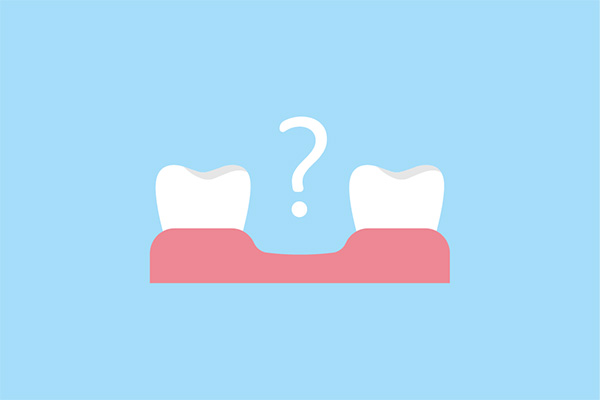 Dental restorations procedures repair damaged or decayed teeth and improve their appearance. Multiple restoration procedures are available today, each with unique benefits and drawbacks. The following article presents the various options for dental restoration procedures and which may be the most effective treatment option for you and your smile.
Dental restorations procedures repair damaged or decayed teeth and improve their appearance. Multiple restoration procedures are available today, each with unique benefits and drawbacks. The following article presents the various options for dental restoration procedures and which may be the most effective treatment option for you and your smile.
Different Types of Dental Restoration Procedures
Fillings
Dental fillings are the most common type of dental restoration procedure. Dentists use them to repair teeth with cavities and other small areas of tooth decay. There are numerous materials that fillings can consist of, including amalgam, composite resin, porcelain, and gold. Amalgam fillings are the most durable and cost-effective but also the least aesthetically pleasing. In contrast, composite resin fillings are more aesthetically pleasing than amalgam fillings but less durable.
Crowns
Dental crowns cover and protect a damaged or weakened tooth. Crowns help restore teeth that have undergone root canal therapy or have suffered extensive damage or decay. They typically contain porcelain or ceramic, which gives them a natural appearance that blends in with the rest of the patient's teeth. In addition to gold or a combination of metals, crowns can be made from porcelain.
Bridges
Dental bridges replace one or more missing teeth. They do this by being anchored to the surrounding teeth to fill the space. They are typically made from porcelain or ceramic. Gold and a combination of metals can also be used to make bridges, but they are less common. Bridges are a good option for patients who have lost one or more teeth and do not want to go through the dental implant process.
Implants
Dentists and other dental professionals often use dental implants for patients with one or multiple missing teeth. Implants are small titanium posts that a dentist surgically inserts into the jawbone. Their design mimics the structure of a natural tooth root. Implants are biocompatible and fuse with the surrounding bone tissue. Once the implant has fused with the bone tissue, a dental crown or bridge is placed on top to complete the restoration.
Dentures
Dentures can replace multiple missing teeth or a full arch of teeth on the upper or lower jaw. They are typically made from acrylic or a combination of acrylic and metal. Dentures can be either full or partial, depending on how many teeth the patient is missing. Full dentures can replace all teeth in the upper or lower jaw, while partial dentures can replace a few missing teeth.
Veneers
Dental veneers are another restoration option that can improve the appearance of teeth that are discolored, misshapen, or chipped. Veneers are thin, custom-made shells that a dentist bonds to the front surface of the patient's teeth. Dental professionals often use porcelain or composite resin to make veneers, as these materials blend in with the rest of the teeth and give them a natural appearance. Veneers can address cosmetic concerns, including stains, gaps, and uneven or misaligned teeth.
Bonding
Dental bonding aims to repair and improve the appearance of a person's teeth using a tooth-colored composite resin material. It is a minimally invasive, affordable, and versatile cosmetic option that can treat various dental issues, such as chipped or cracked teeth, teeth gaps, stained or discolored teeth, and misshapen teeth. The composite resin material used in dental bonding is connected to the tooth using a special adhesive. It is then sculpted and polished to match the shape, size, and color of the surrounding teeth, resulting in a natural-looking and durable restoration.
Let us help you restore your smile
If you want to learn more about dental restoration services, we are happy to help. Our experienced team can answer any remaining questions or concerns you may have and design a treatment plan that fits your needs. Let us help you restore your smile, and schedule a consultation today.
Request an appointment or call Dentistry on Park, LLC at 781-443-8131 for an appointment in our Stoughton office.
Recent Posts
A broken tooth can be a stressful and uncomfortable experience, requiring prompt attention to prevent further damage or complications. Whether caused by an accident, biting into something hard, or untreated decay, addressing a broken tooth quickly is crucial to maintaining oral health. Understanding the steps to take after experiencing a broken tooth can help preserve…
Aftercare and long-term care are vital for maintaining the results if you have recently undergone a dental restoration procedure. Maintaining the results does not have to be difficult; however, you must remain dedicated to caring for your new smile. Following the simple tips below will extend the life of your new dental work.No matter the…
Getting the right dental restoration can improve your appearance and dental health. Your dentist will discuss the possible procedures that will fit your needs. Knowing more about these treatments can help you prepare for your next visit. Here are the common dental restoration procedures available.These restorations can be tooth-colored porcelain, gold, or composite material. This…


